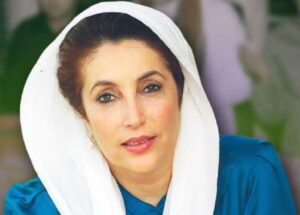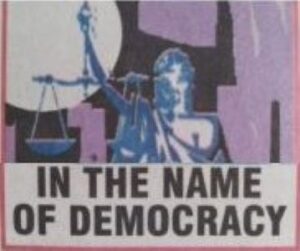Revival of new aesthetics amidst disturbed conditions

By Rana Rizvi
Poetical symposiums of Mushairas are a valuable tradition or heritage of our culture that widens the scope of imagination or diction and appeases aesthetic senses. After the dreadful period of carnage in the city, with the advantage of a peaceful atmosphere, a revivalism of such cultural and traditional activities is being noticed. Mushairas are being arranged by the literary organization on a local scale in precincts of Mohallas. These are expected to increase in number and intensity if the congenial atmosphere prevails.
Besides Mushairas, other activities of literary organizations are taking strides like literary sittings, literary symposiums and seminars, etc. Although not on any grand scale yet these are not insignificant. Literature reflects society’s thinking showing a nation’s cultural values and the extent of its sophistication and directs its spiritual values towards high pinnacles.
Different schools of thought in every discipline of literature which were entangled in heated discussions, as has been the case in every period of literary activity, were subdued due to the existence of platforms in disturbed conditions. However, with the resuming of the activities, the discussions are ready to crop up as can be heard in different small literary sittings. Apart from occasional sittings organized by small literary groups, the Mushairas have also been implicated in the debates. Nevertheless, the low ebb is still witnessed.
Mushairas which had recitals of ghazals, and lyrical and love poetry as the main agenda, were metamorphosed into revolutionary hymns during the period of Progressive Writers’ influence, which period lived up too much after partition. Pakistan having one of the ingredients as religious fervor in its creation, naturally diffused more anti-progressive sentiments. Even the culture and civilization, which are always local and regional, were baptized to bring the child of the religion.
Literature was divided into Islamic and non-Islamic literature.
This unnaturally born baby could not survive and died soon but having devoured much of our energy and strides onward. History never stops moving, so does the literature in its accompaniment. New debates, discussions and search for the new realities of life became the point. New styles, diction, and imaginations flourished. Our short stories, novels, and whatever criticism came out, proved stupendous. Barring drawbacks and the smaller volume, it is at par with the world literature.
The ghazal and poetical side was, however, the main bone of contention between the literary circles. As a matter of fact, it is well-known prose side has a vast scope for experimentation and regimentation, whereas in the realm of poetry, the forms are scarce. The original shape of the ghazal and other verses like mathnawi and concatenated ghazals which have come down from Persian poetry did not change the form. Every effort to change was callously resisted. Our nazam has the same precincts as Persian mathnawi. The power of resistance against all odds by our ghazal has been derived from the five-thousand-year-old deep-rooted traditions, upbringing, and rearing up of the Persian language. When Urdu was in the cradle, Persian was its foster mother. The cereal it got in infancy was what Persian had produced. Persian is still a far-developed language and the use of phraseology, similes, metaphors, epithets, adumbrates, and other parts of poetry, it is superb and vies with any highly developed language of the world. The lexicography of Persian still supports Urdu.
A section of our poets and writers have taken it upon themselves to oust Persian-oriented words and phrases from our dear Urdu. It has always been good news that they are inclined to commit gainful experiments. It would, however, be much better if they make experiments in enlarging the base and scope of the language by absorbing more and more words from other languages and creating more phrases.
Two types of poems have been produced. One sort has a very simple diction having the same form as a ghazal. The simplicity of the language obviously mars the imagery. The poets bring out what he feels without introspecting or analyzing the events. The results are neither obtained and crystallized nor generalized.
This type of poetry turns into a simpleton’s overtures. The verse is devoid of aestheticity and sensitiveness. Poetry is a demanding job. Everyone can enjoy the beauty of a rose but there are few who can describe it in enchanting words. The population census of our poets will show at least 50% of our people claiming they are poets. Out of these millions, in every period, the recognized and established poets who are widely acclaimed by the public could be counted on fingerprints.
It is however not the intention to discourage the local poets. In fact, they are stars to the full blooming moon. The other form which has developed is the prose-poetry. To express one’s feeling man is allowed whatever form the expression may take with certain limitations no doubt. But in literature it is different. There are no meters, no hemi-stitches, no fineness.
Blank verse was however introduced in our poetry during the days of the Progressive Writers’ period who brought it from the West. It was stated at the time that the expression needs more freedom beyond radief and qafia although the balance of meter is essential. Some masterpieces were produced in this style, but for the reasons best known to the poets, this form is not in vogue after the late Faiz Ahmed Faiz. He masterly indicted the finest pieces in this form.
The dividing debates have not fully affected the Mushairas. People listen to each other and shower applause and eulogize good poetry irrespective of the type and style. The manners of attending a Mushaira have in the conditions been ostracized from ways of life.








